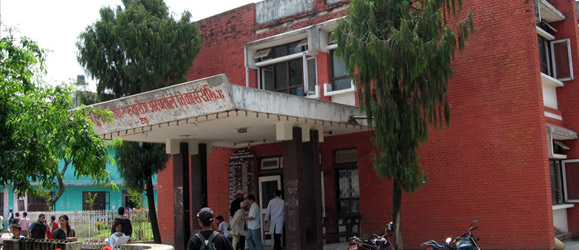Dengue cases reported across country
Kathmandu, October 31
Around 81 cases of indigenous dengue have been reported from Kathmandu, Pokhara, Parbat and Syangja. This is the first time the country has recorded such a large number of indigenous dengue cases.
According to Dr Anup Bastola, spokesperson for Sukraraj Tropical and Infectious Disease Hospital, Most of the people suffering from dengue are the ones who haven’t travelled outside the country in the recent past. “Indigenous dengue cases are seen in Kathmandu, Pokhara, Syangja and Prabat for the first time,” said Dr Baskota.
A 52-year-old woman from Bhairing, Kushma Municipality, Parbat, was diagnosed with dengue and admitted to hospital. She does not have any history of traveling from Bhairing in the last three months. “As per the rapid test, she tested positive for non-structural protein 1 (NS1) which clearly shows that she has dengue. In the same way, patients from Kathmandu, Kaski and Syangjya with no travel history also tested positive for NS1,” added Dr Bastola.
According to World Health Organisation, dengue is a mosquito-borne viral disease. The Aedes aegypti mosquito is the primary vector of dengue. The virus is transmitted to humans through the bite of infected female mosquito. After virus incubation for four to10 days, an infected mosquito is capable of transmitting the virus for the rest of its life.
Infected symptomatic or asymptomatic humans are the main carriers and multipliers of the virus, serving as a source of the virus for uninfected mosquitoes. Patients who are already infected with the dengue virus can transmit the infection (for 4–5 days, maximum 12) via Aedes mosquitoes after their first symptoms appear. Aedes aegypti mosquito lives in urban habitats and breeds mostly in man-made containers. Unlike other mosquitoes, Aedes aegypti is a day-time feeder, its peak biting periods are early in the morning and in the evening before dusk. Female Aedes aegypti bites multiple people during each feeding period.
“When local mosquito gets infected with dengue virus and transmits infection to local people, it is called indigenous dengue. And, once people of a particular place get infected with dengue, there is possibly of dengue outbreak every one or two years,” informed Dr Bastola, adding, “Kathmandu and adjoining districts are at high risk of dengue outbreak. Indigenous cases have been recorded for the first time in the valley so there are chances that more people might suffer from dengue next year.”
Epidemiology and Disease Control Division said 156 cases of dengue have been reported throughout the country till now. Among them, 69 cases has been reported from Kaski, 10 from Kathmandu and six from Makwanpur. Dr Bibek Kumar Lal, director at EDCD, shared that no indigenous dengue cases were recorded in these four places earlier.






